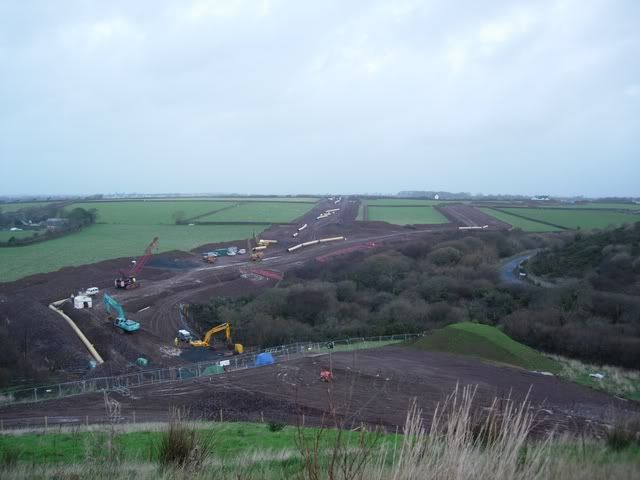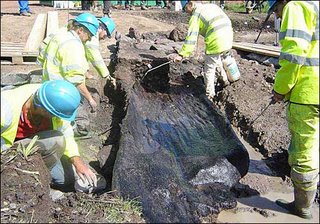Amazing to think that this camp started with a little black dog called Max! What you're looking at is a public footpath (part of the Pembrokeshire Coastal Path) that National Grid rather foolishly forgot to close off. A local landowner regularly walked her dog along the path, and couldn't work out why the contractors hadn't bulldozed through it yet. Residents in the area, inspired by the Trebanos protest camp, took a chance and pitched up.
While Milford Haven hasn't hogged as much of the limelight as it's sisters up the line, it's probably the most strategically significant as it prevents National Grid from connecting the pipeline to the terminals. No connection, no gas. Simple.


